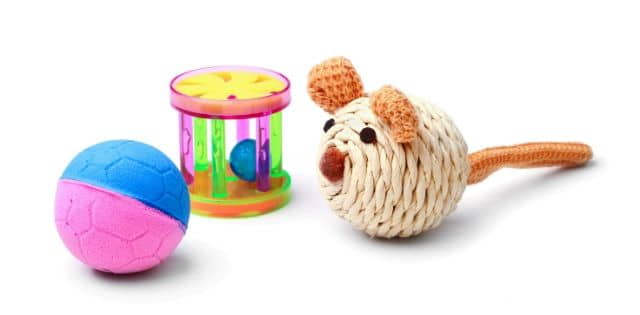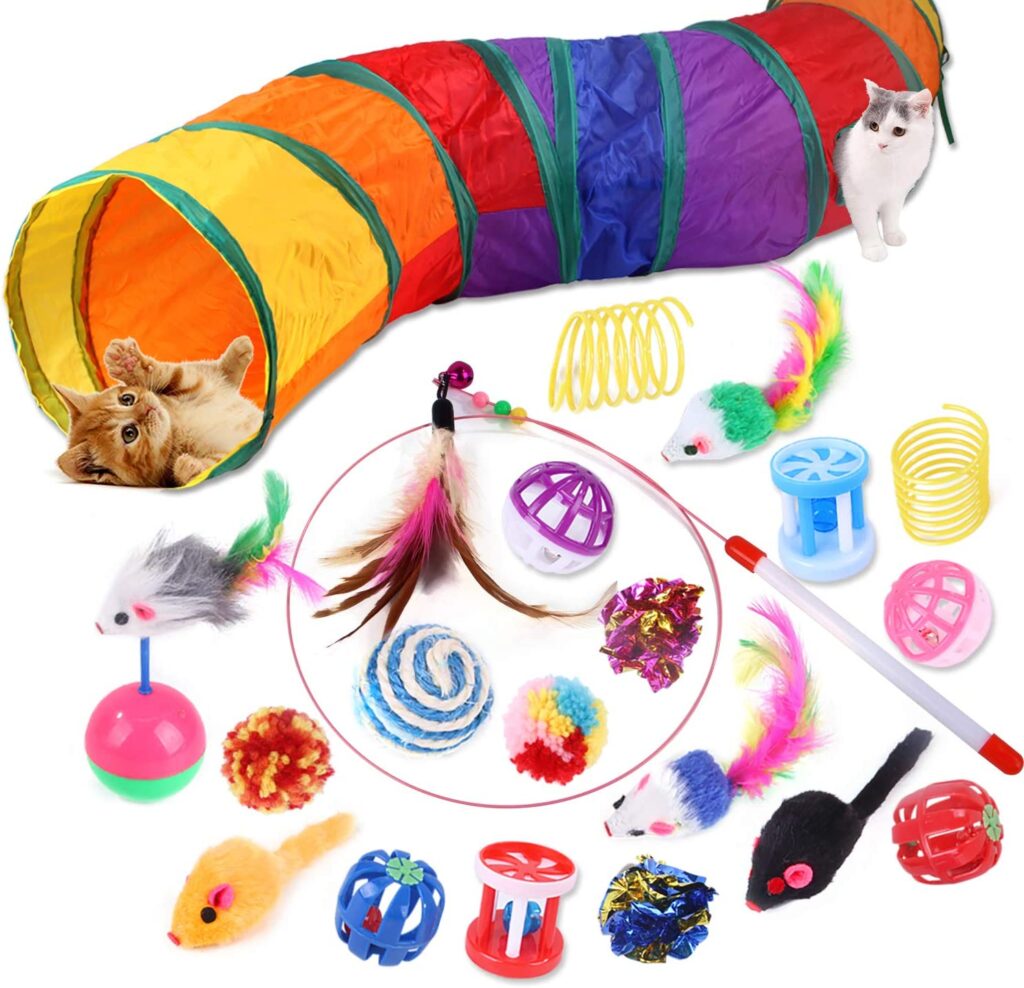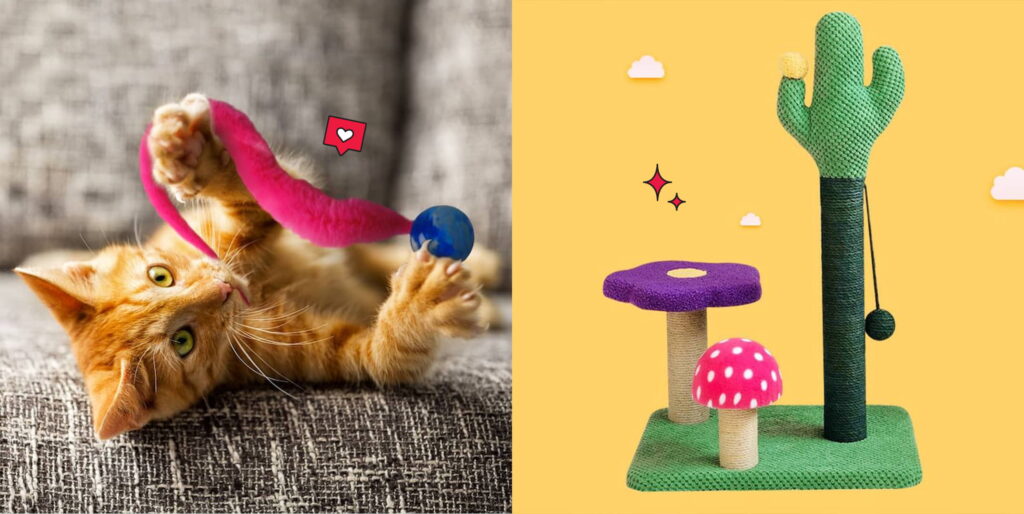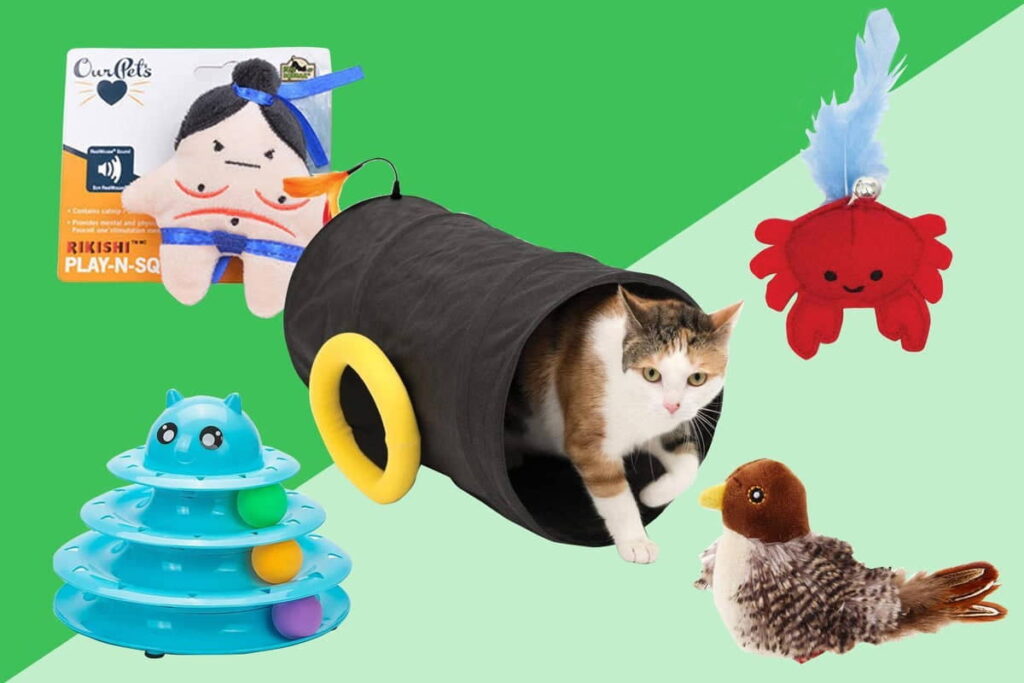A feral cat may spend half of her day going through the stalk, pounce and kill of the hunting ritual, trying to obtain enough food to sustain her litter and herself. Meanwhile, our domestic felines nosh all day long on a commercially produced, owner-prepared diet without so much effort as placing a paw on the electric can opener. Little wonder Petunia has packed on a few pounds! When we relegate our feline friends to indoors-only status, we rob them of the opportunity to work for their living. It is a far safer existence, but a more mind-numbing, sedentary one. Thus, it is up to us to enrich their environment and enhance their lives.

As luck would have it, cats are easy to amuse. There is very little in their environment that could not serve as a cat toy in a pinch. In fact, in many households, commercial cat toys gather dust while items set aside for recycling are co-opted by the cat. Bottle caps, paper shopping bags, dried-out pens, shoe boxes – what may be garbage to you is a rip-roaring good time to your cat. Am I the only one who leaves appliance cartons in the middle of the living room floor for a month or two so my cats can play hide-and-seek?

Kitty Calamities
When evaluating household items for cat-worthiness, pay attention to bits and pieces that could be chewed off and swallowed, get caught on a claw and prevent retraction or become lodged in the cat’s mouth or throat. While most cats love hiding in paper shopping bags, they abhor it when, after poking their heads through the handles, they find they cannot outrun the sack which has now taken on a life all its own – “chasing” them all over the house. Simply snipping off the handles before allowing your cat access will prevent such problems.

There is no more important safety edict than “Know thy cat.” What attracts him? Has he developed an oral fixation on paper curling ribbon, plastic milk cap rims or aluminum foil? If so, proper disposal of these items is critical to avoid gastrointestinal upsets in your feline; for other cats, however, these items may serve as occasional, well-supervcan beed toys. Commercial toys must be carefully scrutinized before being declared safe in your personal peaceable kingdom, too. Wands with fluttering mylar strips are appropriate for cats who only bat at them with their paws. But if your cat is like my girl Gracie, who puts everything she catches in her mouth, this would be a dangerous plaything.
Kitty Cautions
Recently, the ASPCA was contacted by a consumer reporter who has been investigating the safety of a battery-operated retractable cat toy, after receiving a television viewer’s complaint. A little plastic “anchor” could be cast out from the handle on a fine thread and then, by pressing a button, the line would swiftly retract – with kitty in hot pursuit. While testing the toy in an open area, our adolescent shelter cat volunteer was having the time of his life stalking and pouncing on the little plastic bait. However, if used too close to furniture, there is a small chance that the cat’s leg could get caught in the line – as the viewer’s had. Rather than ban the toy because of what might happen in rare situations, owners should carefully evaluate the suitability of this item – or any other – for his or her own circumstances, select accordingly and always monitor their cat’s play.

By intimately knowing our feline companion’s habits and play styles, we can make the proper selections of toys. This, in turn, will provide a mentally challenging environment, stimulating exercise and just good plain fun – yielding a happier, healthier homebody.
Wondering about Road-Trip Tips: How to Travel With Your Cat In The Car? Check it out on our latest post!
